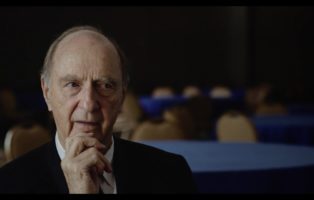
Beyond the Crisis in Psychology
The 2020/21 Distinguished Lorentz Fellow Talk
But as with any problem how you solve it depends on how you diagnose it
Prof. van Rooij started by explaining that the story she would tell us is necessarily abstract, because it deals with meta-science which is the study of science itself.
Until today, scientists have believed that the experimental method makes psychology a science as opposed to philosophy. Using this method, effects could be produced and reproduced in the lab.
But on a closer look, many of these effects which were published in high standing journals turned out to be non-replicable. So these effects could be statistical errors and likely not real. This is commonly known as the replication crisis in science.
“But as with any problem how you solve it depends on how you diagnose it”- Iris van Rooij
In Prof. van Rooij ‘s DLF project, she addresses the root cause of the cracks in psychology brought about by the replication crisis.
Namely, that psychology is built on weak theoretical foundations, which otherwise would have supported the research.
She suggests that cognitive psychology has replicable effects, so maybe we can learn something from there. For example, the Stroop effect or perceptual illusions. As scientists we are only interested in these effects as long as they help us understand real-world capacities, like memory, communication, vision & cognitive control.
We need theories of these capacities first before we can test, but there is little or no funding for theory building. Regrettably, we are only going after effects and ignoring theory-building. The obstacles to this are 2-fold.
The main obstacle is the perception that theory is to be built on effects. We collect many effects and then try to build a theory on it.
“For me, it’s like trying to write a novel from randomly generated sentences.”-Iris van Rooij
For me, it’s like trying to write a novel from randomly generated sentences
The second obstacle is that there is no systematic approach to theory building. Here psychology can learn from cognitive science.
Cognitive science studies mind & behavior: it is interdisciplinary; a combination of computer science, philosophy, and other disciplines.
Concepts from cognitive science can also be used for building theories in parts of psychology.
One example of such a concept is levels of explanations: we can build an explanation of capacities by answering three layers of questions, What is the nature of the capacity? By which processes is the capacity realized? How are those processes physically instantiated.
Iris explain the relation between effects and theory and how they support each other
With the DLF project Prof van Rooij wants to make the tools accessible: also for psychologists outside of cognitive science.
She is writing an open and interactive textbook with Mark Blokpoel. But also framing it; which is why should people adopt these tools? Only when we have a qualitative conceptual shift in how we think of scientific progress in psychological science.
Discussant Kenneth J. Gergen responded that while theory is great, his approach is a reflective pragmatism; what does it contribute? If we look at the grand theories; Darwinism, Freudian, Marxism. They don’t predict anything but they account for things. The problem is they cannot be proven or disproven, but they do add value. How does your theoretical approach add value?
The second discussant, Sarah Durston added that the replication crisis also applies to psychiatry, many effects on brain measures are not replicable. But perhaps the problems lie deeper: there is a fundamental assumption like materialism: that all of human experience can be understood as arising from brain function. But is it correct?
Watch the DLF Talk: Beyond the Crisis of Psychology and Iris' response to her discussants
During the talk many questions were posed to Iris on her research which she has answered in her blog Metatheorist
Prof. van Rooij will be conducting a Lorentz workshop on what makes a good theory. Which brings together researchers from different disciplines like computer science, biology, cognitive science, neuroscience to share their perspectives. For more information please contact The Lorentz Centre at info@lorentzcenter.nl
-
 Fellow
FellowDurston, Sarah
-

-
 Fellow
FellowGergen, K.J.
-
